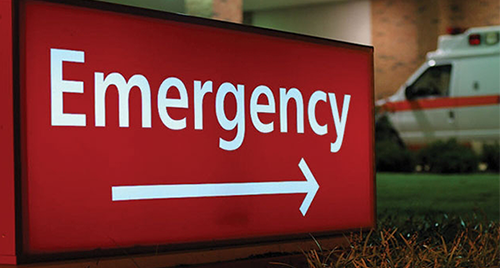- Clinic:
- 0733 945 717
- 0739 434 212

Resist the urge to substitute formal prescriptions
May 17, 2023
How to cope with unusual cravings in pregnancy
May 22, 2023Avoid unnecessary visits to emergency departments

What goes on in hospitals’ emergency departments, ED for short, is self-explanatory. And if you walk into health facilities that have EDs, you will not miss the unmistakable signage with white text on a red background. You'd therefore have little excuse for not finding the location of an ED within a hospital when the need arises.
Well-equipped and adequately staffed EDs have the capacity to deal with any medical emergencies walking through the door. They are in the business of saving life, and limiting serious consequences that may result from life-threatening maladies. Ideally, EDs should only deal with emergencies. And it should be clear that an emergency is a medical situation that happens unexpectedly and demands immediate action, short of which serious harm or death may occur.
The lay interpretation of an emergency is however wide and varied. This presents a big problem to EDs. You see, EDs have a finite capacity in terms of personnel, equipment, space etc. They can therefore easily get overstretched if they end up not only dealing with emergencies, but also dealing with other countless mundane medical problems. An overstretched ED will inevitably falter with quality of care, hence the drive for rational use of EDs.
When should you visit an ED?
In simple terms, it should only be on occasions when life-threatening illnesses or accidents suddenly occur. Examples are sudden chest pains that may indicate a heart attack, an acute asthmatic episode, major accidents, and many other conditions. In such situations, you must make your way to the ED using the quickest means possible. Time is of essence, otherwise you might end up losing your life, or limb. At the ED, you will be quickly assessed and prioritized, and treated accordingly.
It goes without saying that if you are the one suffering an acute illness, you wouldn’t want any delays in your treatment. You must also look at it the other way, meaning you should never be in the way of those requiring urgent care in EDs. You should therefore try your level best and avoid unnecessary ED visits when all you have are minor ailments that can wait. We are talking of simple things like minor coughs and colds, the odd headache, or minor bruises. Non-urgent ED visits tend to deflect focus from more deserving patients, cause crowding and contribute to endless complaints about the service.
You have several alternatives when faced with a condition that can’t wait for long, but doesn’t really fit into an ED visit. You could book yourself into an outpatient clinic, phone a helpline for advice, pass by a nearby pharmacist, look up an online resource, or try a recognized home remedy. There are plenty of other choices too. You must resist the temptation of walking into EDs on a whim. That would be improper use of a service dedicated to emergency care.
Dr Alfred Murage is a Consultant Gynecologist and Fertility Specialist. amurage@mygyno.co.keTake a fertility test today

